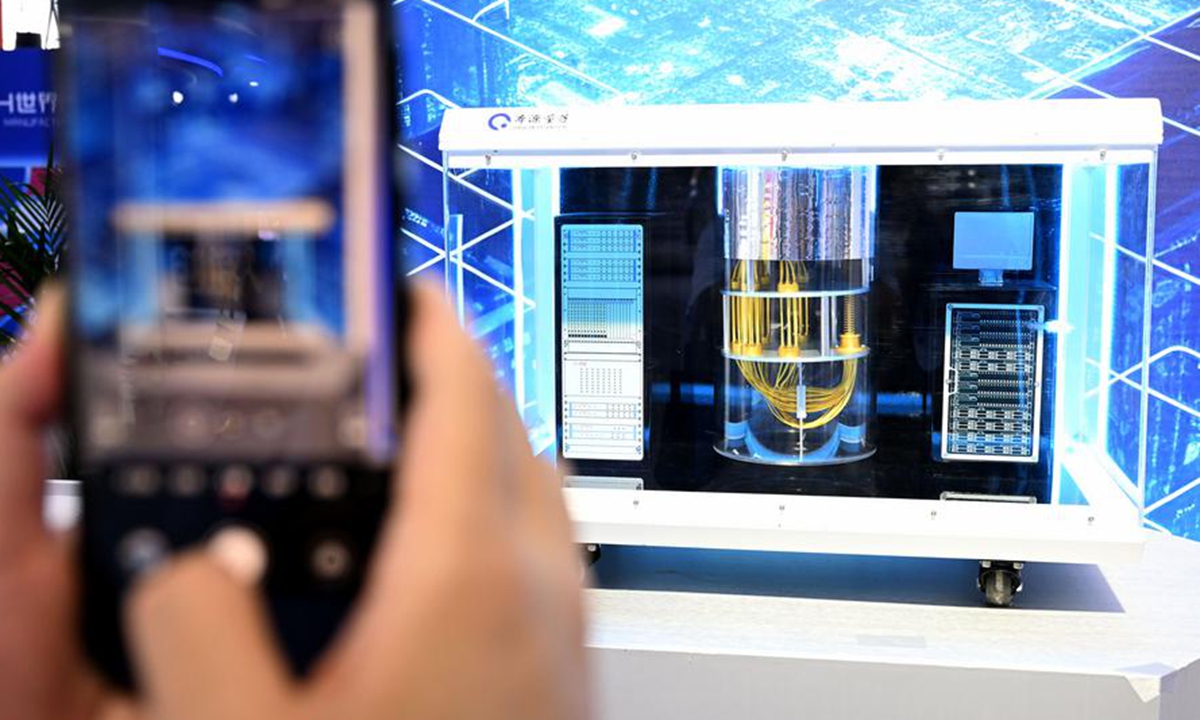
A visitor takes photos of an Origin Wukong superconducting quantum computer model at the 2024 World Manufacturing Convention in Hefei, east China’s Anhui Province, Sept. 20, 2024. (Xinhua/Huang Bohan)
Origin Wukong, China’s independently developed third-generation superconducting quantum computer, has achieved commercial deployment at multiple locations in China, researchers at the Anhui Quantum Computing Engineering Research Center in Hefei, East China’s Anhui Province, announced on Monday.
Three Origin Wukong quantum computers, each of a different version, have been deployed at a supercomputing center, a Chinese university and a government agency, according to a press release the center sent to the Global Times on Monday.
Developed independently by Origin Quantum, the Origin Wukong series achieves full-stack, domestically controllable technology – from quantum chips to the operating system. The three deployed superconducting systems will support major national scientific projects, cultivate quantum information talent in higher education and serve specialized applications.
Globally, only three countries are capable of commercially deploying a superconducting quantum computer, the center said. The other two are the US and Canada.
Since its global launch in January 2024, Origin Wukong has completed more than 530,000 quantum-computing tasks for users from 145 countries and regions.
Guo Guoping, chief scientist of Origin Quantum and director at the Anhui Quantum Computing Engineering Research Center, told the Global Times on Monday that, up to date, export sales of quantum computing power were completed to a client in a major European country.
Industry experts estimate the global quantum-computing market will reach $800 billion in the coming years, per the release.
Expounding on the potency of quantum computing, Guo said in a March interview with the Global Times that it is like a rocket, whereas traditional computing is “a car,” intelligent computing is equivalent to “a bullet train” and supercomputing is “a plane.”
Quantum computing could slash the time to train artificial intelligence (AI) from weeks to mere hours, Guo added.
Chinese companies have been making progress in developing quantum computers. The Xinhua News Agency reported in March that a separate group of scientists from Anhui Province had unveiled a superconducting quantum computer prototype named Zuchongzhi 3.0 with 105 qubits, a breakthrough in China’s quantum computing advancements.
The achievement also set a new record in quantum computational advantage within superconducting systems, according to Xinhua.
